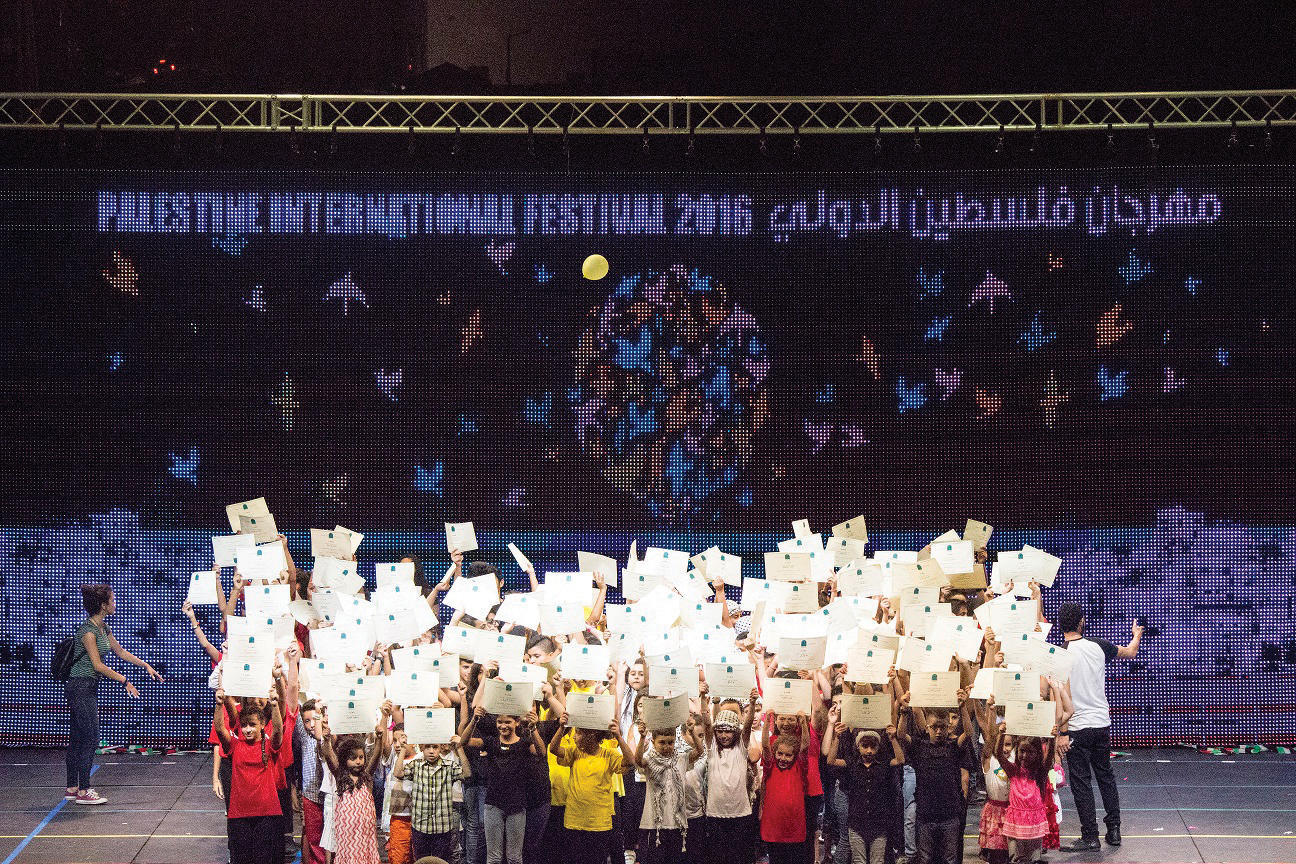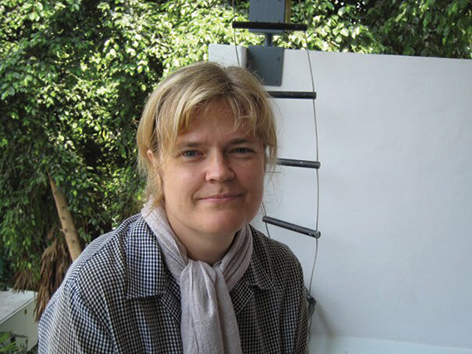Culture is an important venue for selfexpression; it is also a way to teach youth about their heritage in both serious and more light-hearted ways. As in other conflict areas around the world, the Palestinian people strive for normalcy – watching a play, listening to a concert, and participating in a fun festival can give them a feeling of respite and increases the feeling of community. One example of a successful cultural event was the recent Nablus Day in Jerusalem that attracted around 45,000 people. I had just recently arrived in Jerusalem and felt such joy seeing the roads full of people strolling between the many activities. Sweden funded this festival through a program implemented by UNDP’s Community Resilience and Development Programme.
Sweden’s support to Palestine is very clear in its commitment to gender equality as a key starting point of activities. Women’s rights, status, political influence, and economic participation are given priority, in line with Security Council Resolution 1325 and subsequent resolutions. This is particularly interesting in the case of Sweden’s support for culture, as Palestinian traditions generally designate private spaces for women and girls, and public spaces for men and boys. Cultural activities take place in public spaces. By bringing women and girls into public spaces, expecting and encouraging them to participate in shaping Palestinian culture, narrative, and identity at equal footing with their peers, cultural activities act as reinforcers and promoters of these same values.
Cultural support is also linked to the strengthening of democracy, and particularly emphasizes freedom of expression, the importance of safe spaces, and national identity. Palestinian artists, writers and musicians must have the opportunities to reclaim their own narrative that is rooted in Palestinian experiences, heritage, and history. The fragmentation of lives and territory between the West Bank and Gaza are further contributors not only to political disintegration but also to a cultural breakdown.
Sweden’s support to the Palestinian cultural scene is through programs that cover the visual and performing arts and address the institutional development of cultural institutions in East Jerusalem and in the occupied territory. For example, Sweden has granted support to the A M Qattan Foundation (AMQF) for the period of 2016-2019, supporting its US$ 44.3 million programme “Visual Arts: A Flourishing Field” and a set of art education activities. Sweden supported direct grants given to both visual arts organisations and individual artists, helping them build their capacities in different relevant areas and thus contributing to a vibrant, innovative, and more sustainable visual arts scene in Palestine.

Another organization and program that Sweden supports is the Palestinian Performing Arts Network (PPAN) and its US$ 4.5 million program titled Performing Art is a Right and an Entitlement, for the period of 2016- 2019. PPAN was established through an earlier Swedish support to the AMQF. The organizations and groups that make up PPAN recognized that working individually and with little coordination, without pooling resources and knowledge, they would stand little chance to achieve the changes they desired. They therefore established the network and developed a joint program that includes advocacy for the rights of performing arts and a strong focus on the engaging of youth and children in marginalized communities of Area C, seam-zone villages, Gaza’s rural areas, and Jerusalem’s suburbs. To date, PPAN members have produced 61 productions for 3410 students and performers (boys and girls), presented 826 performances for 104,300 public audience members, and organized 26 festivals for a public audience of 75,100. Thousands of children have engaged in formal and informal art education, and a training curriculum for around 50 unemployed young adults from marginalized areas has been organized as well.
The situation in East Jerusalem has been deteriorating for the past two decades not only from a spatial and infrastructural point of view, but also from a strategic lens. Palestinians living in East Jerusalem have been left isolated from the rest of Palestinian society. Thus, support to East Jerusalem institutions is crucial in order to reduce imbalances and division, enhance Palestinian resilience by increasing access to cultural arenas, and provide a safe haven for the freedom of expression. Institutions in East Jerusalem are under constant political scrutiny and threat, exacerbated by financial restrictions, as they are being neglected by the donor landscape. The international community needs to advocate for more access to Jerusalem, so that people from the West Bank can more easily attend cultural events in Jerusalem. It is also important that culture institutions develop programs attractive to youth.
Sweden’s support through the NGO Development Center (NDC) targets the strengthening of institutions in East Jerusalem by giving them space to think tactically and work together on a common Jerusalem cultural strategy that aligns with the strategy of the Palestinian Ministry of Culture. By working together, five prominent cultural institutions in East Jerusalem created the Jerusalem Arts Network SHAFAQ which aims to strengthen Jerusalem’s central role in Palestine’s broader cultural life and to enhance the resilience of Palestinians living in Jerusalem, with a special focus on children and youth.
Many donors and development actors recognize that the lack of core funding to cultural institutions poses a challenge to the strategic growth of the institutions and forces them to focus their capacities on fundraising and on running short-term projects. The potential to create longterm social change through cultural support is immense. Structures can be rebuilt in the future; destroyed souls, however, are much more difficult to rebuild, particularly given the negative dynamics young Palestinians are exposed to.


